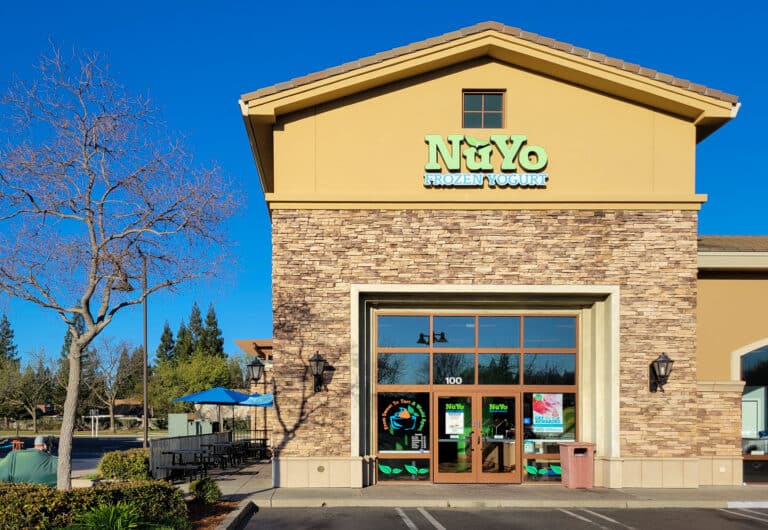Dae Gee Korean BBQ Franchise FDD, Profits & Costs (2025)

Dae Gee Korean BBQ is a Colorado-based restaurant chain specializing in authentic Korean barbecue. Founded in 2010 by Joseph Kim in Westminster, Colorado, the brand has expanded its presence across the state and beyond.
Dae Gee, which translates to “pig” in Korean, offers a unique dining experience that blends traditional Korean flavors with a modern, communal atmosphere. The restaurant’s menu features a variety of marinated meats, fresh vegetables, and traditional Korean side dishes, allowing customers to cook their selections on tabletop grills.
This interactive dining style sets Dae Gee apart from competitors, providing an immersive cultural experience. The brand emphasizes quality ingredients and authentic recipes passed down through generations, ensuring a genuine taste of Korean cuisine.
Dae Gee began franchising to share its distinctive concept with a broader audience. As of November 2024, the chain operates multiple locations, including establishments in Colorado, Indiana, and Mexico. The company continues to expand, with plans to open new restaurants in states such as South Dakota, Texas, Massachusetts, and New Jersey.
Initial Investment
How much does it cost to start a Dae Gee Korean BBQ franchise? It costs on average between $480,000 – $949,000 to start a Dae Gee Korean BBQ franchised restaurant.
This includes costs for construction, equipment, inventory, and initial operating expenses. The exact amount varies based on several factors, including the type of restaurant setup, the chosen location, and whether the franchisee decides to lease or purchase the property for their Dae Gee Korean BBQ franchise.
| Type of Expenditure | Amount |
|---|---|
| Initial Franchise Fee | $45,000 |
| Architecture and Design Fees | $17,000 – $45,000 |
| Real Estate and Construction Assistance Fee | $16,500 – $22,500 |
| 3 Months’ Lease Payments | $12,500 – $25,000 |
| Security Deposits | $5,000 – $15,000 |
| Leasehold Improvements | $250,000 – $450,000 |
| Furniture, Fixtures and Equipment | $65,000 – $160,000 |
| Signage | $6,000 – $25,000 |
| Computer/POS System | $2,500 – $7,000 |
| Technology Fee (for one month prior to open) | $125 |
| Training | $3,000 – $6,000 |
| Grand Opening Marketing | $12,000 |
| Initial Inventory Purchase of Food and Branded Items | $16,000 – $48,000 |
| Initial Inventory of Alcoholic Beverages | $2,000 – $4,000 |
| Insurance | $3,000 – $9,000 |
| Licenses | $250 – $1,500 |
| Costs for Alcoholic Beverage License | $4,000 – $8,000 |
| Professional Fees | $2,000 – $3,000 |
| Security and Surveillance Costs | $3,000 – $12,500 |
| Additional Funds – 3 Months | $15,000 – $50,000 |
| Total Estimated Initial Investment | $479,875 – $948,625 |
Dae Gee Korean BBQ Franchise Disclosure Document
Frequently Asked Questions
How many Dae Gee Korean BBQ locations are there?
As of the latest data, Dae Gee Korean BBQ operates a total of six locations. These include five company-owned restaurants in Colorado and one franchise-owned location in Fort Wayne, Indiana.
The company has also announced plans to expand into additional states and countries, with new locations expected in South Dakota, Texas, Massachusetts, New Jersey, and Mexico.
What is the total investment required to open a Dae Gee Korean BBQ franchise?
The total investment required to open a Dae Gee Korean BBQ franchise ranges from $480,000 to $949,000.
What are the ongoing fees for a Dae Gee Korean BBQ franchise?
Dae Gee Korean BBQ franchisees pay a 5.5% royalty fee and a 1% advertising fee, both based on gross sales. These fees support brand consistency, operational support, and marketing efforts.
Who owns Dae Gee Korean BBQ?
Joseph Kim is the founder and owner of Dae Gee Korean BBQ. Born in Colorado, he established the first Dae Gee restaurant in Westminster, Colorado, in 2012. With a background in small business management, Kim has expanded the brand to multiple locations, blending traditional Korean cuisine with American culture.
Disclaimer
Disclaimer: This content has been made for informational and educational purposes only. SharpSheets is an independent educational resource and is not affiliated with, endorsed by, or representing any franchisor mentioned on this website. Where noted, figures are taken from the franchisor’s Franchise Disclosure Document (FDD). In some cases, we may provide independent calculations or estimates based on publicly available information. We do not make any representation or warranties with respect to the accuracy, applicability, fitness, or completeness of the information presented in the article. You should not construe any such information or other material as legal, tax, investment, financial, or other professional advice. Nothing contained in this article constitutes a solicitation, recommendation, endorsement, advertisement, or offer to buy or sell any franchises, securities, or other financial instruments in this or in any other jurisdiction in which such solicitation or offer would be unlawful under the franchise and/or securities laws of such jurisdiction.
All content in this article is information of a general nature and does not address the detailed circumstances of any particular individual or entity. Nothing in the article constitutes professional and/or financial and/or legal advice, nor does any information in the article constitute a comprehensive or complete statement of the matters discussed or the law relating thereto. You alone assume the sole responsibility of evaluating the merits and risks associated with the use of any information or other content in this article before making any decisions based on such information or other content.




